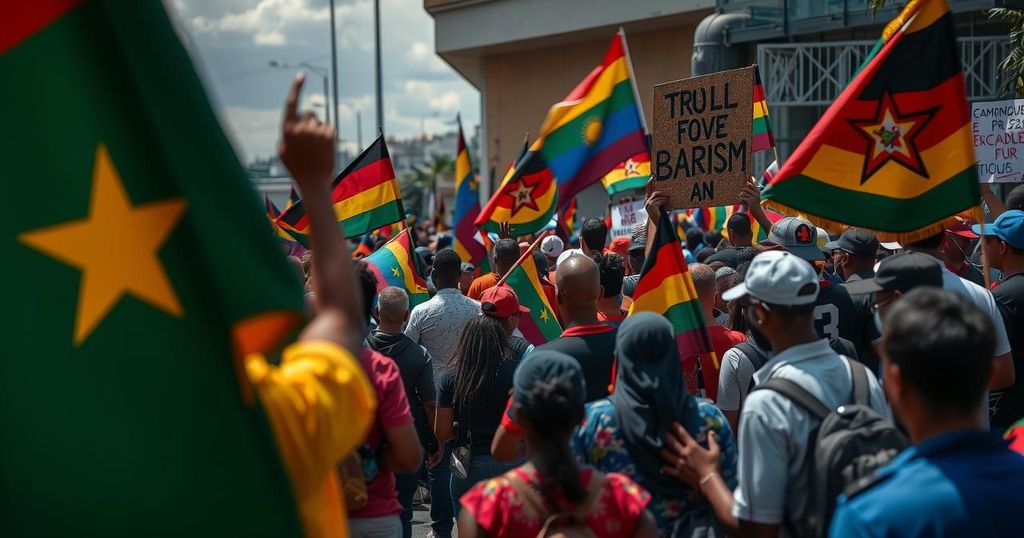Mozambique Protests Erupt Over Alleged Election Fraud as Tension Escalates

Following the announcement of Frelimo’s victory in the contested elections, protests erupted across Mozambique, resulting in violent clashes with police. At least 18 deaths have been reported amid crackdowns on demonstrators, with increasing calls for political reform led by independent candidate Venancio Mondlane. Human rights organizations criticize the government’s response to public dissent, which has included disruptions to internet access and deployment of security forces.
In Mozambique, significant unrest has erupted following the declaration of the ruling Frelimo party’s victory in the recent general elections held on October 9. Authorities announced that Frelimo has extended its 49-year tenure despite widespread allegations of electoral fraud. Protesters clashed with police in the capital, Maputo, where security forces deployed tear gas to disperse thousands of demonstrators, signaling deep frustration among citizens who question the legitimacy of the electoral process. Human rights organizations report at least 18 fatalities linked to the police’s crackdown on protests since the election results were made public. The elections were particularly contentious, highlighted by substantial support for independent candidate Venancio Mondlane. Mondlane characterized the results as skewed and initiated a call for a week of protests culminating in a significant demonstration on Thursday. Both civil society and international observers have criticized the elections as unfair, further escalating tensions within the country. In a statement made from an undisclosed location, Mondlane stressed that the current climate represents a crucial moment for political transformation in Mozambique, indicating a potential shift in the nation’s governance. On the day of the protests, Maputo witnessed a heavy security presence, creating an atmosphere of unease. The Mozambique Bar Association issued warnings of possible violence as businesses and educational institutions closed in response to the unrest. Additionally, the government restricted internet access nationwide, aiming to control public discourse and dissent against its rule. United Nations High Commissioner for Human Rights Volker Turk urged Mozambican authorities to exercise restraint, emphasizing the importance of conducting themselves in accordance with international human rights standards during public demonstrations.
The political landscape in Mozambique has been dominated by the Frelimo party since the country’s independence in 1975. Recently, the integrity of electoral processes has come under scrutiny, particularly with the results of the October 9 general elections, which have been marred by accusations of fraud and unfair practices. Youth-led movements and the rising appeal of independent candidates signify a growing discontent among the populace towards long-standing political dominance. The situation has prompted protests, with significant concern over human rights violations tied to the government’s handling of dissent.
In summary, Mozambique is currently experiencing heightened tensions following the disputed election results favoring the Frelimo party. The backlash has resulted in significant protests, marked by police violence and international concern regarding human rights. Venancio Mondlane’s calls for political reform resonate with many citizens, highlighting the civil unrest that may serve as a catalyst for future political changes in the country.
Original Source: www.aljazeera.com







